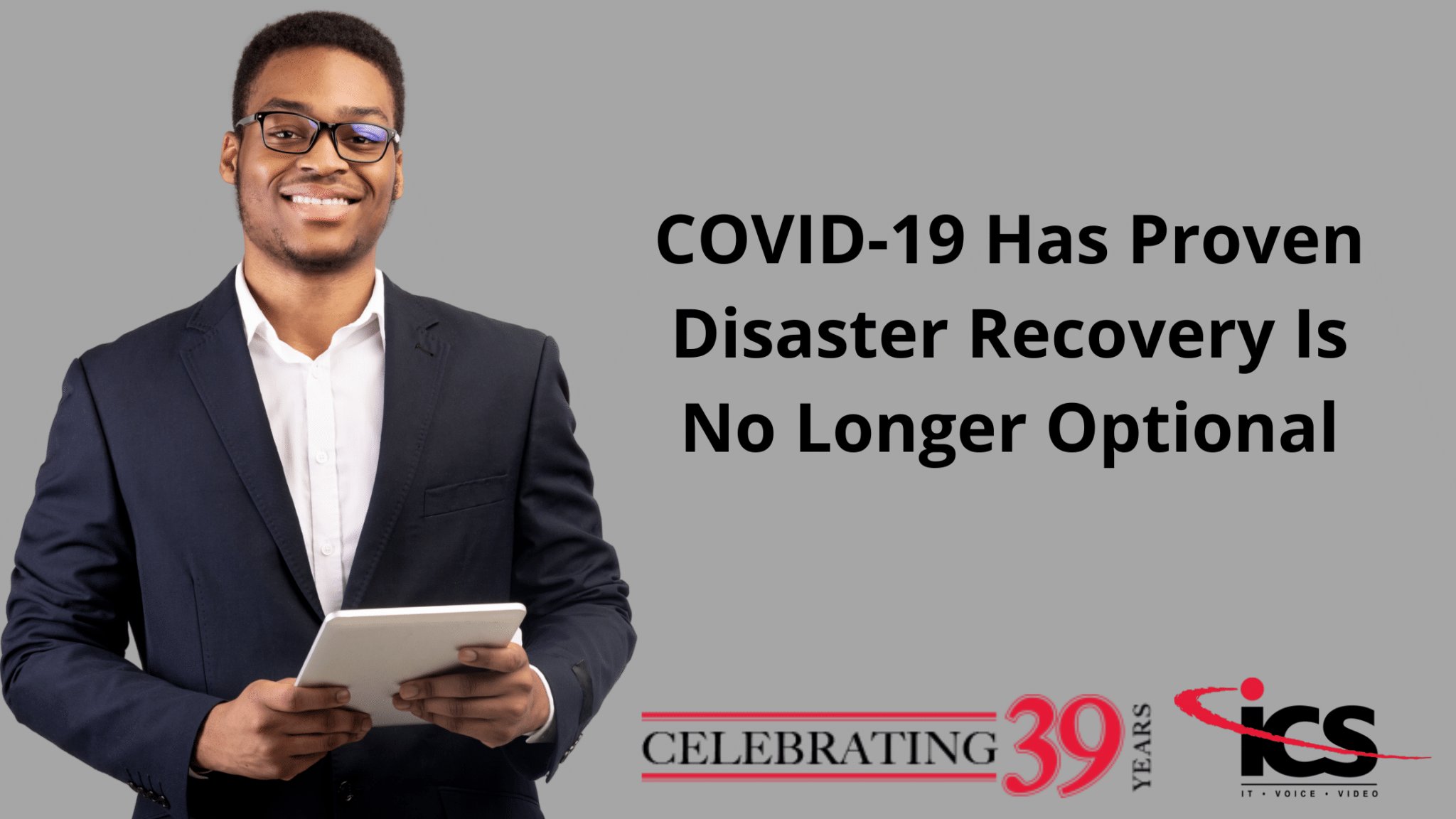Get in touch with us today to find out how can we help you.
Disaster Recovery In A COVID-19 World
Coronavirus forced your company to update your staff’s ability to work remotely. But working with ICS, your organization will remain protected from cybercrime in a pandemic.
COVID-19 Has Proven Disaster Recovery Is No Longer Optional
The marketplace and cybersecurity rules have changed. We used to talk so much about ransomware and malware attacks on companies at physical locations. That’s because most cybercrimes took place there. But with coronavirus and a remote workforce as our new standards, the possibilities of cyberattacks; has no boundaries. For those reasons, Disaster Recovery plans are the viable options that can help you when your security remains limited.

What Should Know About Disaster Recovery In a COVID-19 World?
You’ve come to discover your team can work remotely as your office building remains closed. But the questions left unanswered, “Is your current technology designed to function securely, if your building remains closed and you have to continue working from home? What if you lose power for two weeks? Your remote location is flooded or worse, destroyed by a tornado. How will you recover your data?
For starters, keep conducting business, but with one exception. Contact your IT managed provider right away. When you must work remotely, your managed service provider needs to be a part of that set up from the beginning. When you are away from your company’s physical office, your IT security for that location cannot protect you or a team member somewhere else. That makes your data an easy target for cyber theft.
Do Your Disaster Recovery Plans Need Changing?
In our current pandemic state, companies with initial disaster recovery plans realized; Remote workers are not operating from a tightly guarded and secure environment like at the office. Before coronavirus? Over 90% of companies with a robust backup system and updated disaster recovery plan were rarely affected by ransomware attacks.
However, now with a new dynamic affecting all of us, disaster recovery plans are a tool needing a fresh new look. And yes, we still need to look at accidental file deletions, human errors, hardware failures, drinks spilled on devices, natural disasters, and cyberattacks. But let’s not forget remote work means less security protection and a greater chance of data loss or theft.
Disaster Recovery And The Second Wave?
When your city or state begins to lift social distancing guidelines or restrictions for your industry, and going back into the office becomes available, there is another concern you need to consider. A second wave of the virus could emerge in the coming months. For that reason, don’t forget what you’ve done during the first wave. If indeed this does happen, review your disaster recovery plans now, and be prepared.
Consider working with the ICS team if you have questions or concerns about disaster recovery and remote work safety.
Click here to get in touch with our experts or call us at our offices in:
- Houston – (281) 962-3058
- San Antonio – (210) 305-4087
- Austin – (512) 253-4135

ICS is a Texas-based 40-year-old technology company specializing in Managed IT, VoIP, Video Conferencing and Video Surveillance solutions for US and International businesses. ICS has over 4000 regional installations and specializes in multi-site businesses between 25 and 2500 employees. ICS’s customers enjoy the experience of ICS’s Total Care program which provides clients flat fee services with obsolescence and growth protection. Whether a customer elects to deploy their IT, Video Conferencing or VoIP in the cloud or on the customer’s premise, ICS can provide a full turn-key solution for our clients under one flat monthly fee.



